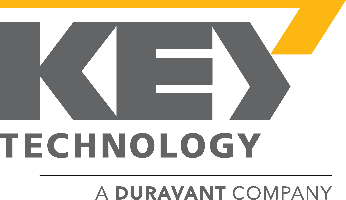The Duravant family of operating companies serve the food processing, packaging and material handling segments.
How Employee Roles Are Expected to Shift in the Manufacturing Industry
05/07/2022
How Employee Roles Are Expected to Shift in the Manufacturing Industry
The latest innovations in manufacturing involve automation, information technology (IT), and robotics, meaning that much of this work is no longer performed by humans. Of course, this has led to fears that technology will completely replace workers. Though there is reason to worry, the issue is quite nuanced. A report by Deloitte shows that nearly half of today’s job roles in the manufacturing industry will disappear over the next decade.
However, these changes may lead to more employment opportunities. Technology will allow companies to scale up operations and require them to hire workers with specialized skills to manage their newly digitized operations. Deloitte even predicts a labor shortage, because the current workforce does not have the skills or knowledge to manage new industrial technologies.
Here is a closer look at the changes happening in manufacturing and the new roles workers can prepare for if they want to succeed in this industry.
Soft Skill Applications
In modernized factories, soft skills are as essential as technical know-how. Employees need to make decisions independently, think critically, solve problems quickly, and communicate with others on the factory floor.
How important are these non-technical skills? Factories rely on an array of robots and other devices that help to keep things running. Then, when something breaks down, operations will grind to a halt until someone with problem-solving and critical thinking skills steps in to find and fix the issue.
Critical thinking skills are necessary to coordinate all these components in an efficient and profitable way. For example, you may need to slow down energy-hungry machines to get the correct ratio of output versus power use to maximize profits while minimizing operational costs.
Information Technology
With the rise of automation, robotics, embedded systems, and big data, the need for skilled IT professionals in manufacturing companies has never been greater. Tech experts need to keep the systems secure, updated, and operating at peak efficiency.
For example, computer numerical control (CNC) machines rely on software to manage their operation. Someone needs to design these programs and someone else needs to create the inputs for each production run. nVenia has several knowledgeable CNC experts on staff.
3D printing is another example of a manufacturing system that requires extensive IT input. The automated machines produce solid components from digital designs. Because they are precise and cheap to operate, they are popular among manufacturers. However, they require experts to set each blueprint, create 3D models for the machine to follow, and select the appropriate materials.
Companies can use data from these devices to analyze cost, output, and other factors to help improve operations. IT professionals can connect databases, handle software and hardware updates, and ensure that the network to which all the computers and embedded systems connect remains secure.
Data Analytics
The rise of big data has put huge amounts of information at companies' fingertips. Businesses can obtain real-time insight into their processes, such as:
- Event simulation;
- Quality assurance (QA);
- Productivity analytics;
- Yield optimization;
- Predictive maintenance.
Information from operations within the plant is easy enough to collect, but it requires analysis before it can be used to improve processes. Obtaining insights from raw information requires skilled data analysts and data scientists. These specialists can create systems to access and store data from different sources and organize it in a way that provides valuable insights.
Quality Control
Quality control is essential for the manufacturing process. Philosophies like Lean Production and Six Sigma have been at the core of the most successful manufacturers for several decades now, and quality control will continue to be an important consideration for manufacturers.
With rising consumer standards, the cost of poor product or package quality continues to climb. Manufacturers need smart quality control tools like machine vision, automation, and data analytics to maintain their standards. Digital quality control tools require the extensive use of technology, but humans remain an integral part of the process.
QA managers need to oversee the ecosystem of sensors that collect quality-related data, just like they would have to manage human employees. They also have to monitor dashboards that display data and interpret the information they get from QA systems.
Safety Enforcement
As manufacturing plants adopt automated operations and rely on robotics, the need for safety enforcement is greater now than ever before. Instead of ensuring compliance with standards on the assembly line, safety officers have to get involved in different areas. They often need to work with IT staff and machine programmers to ensure that equipment has functioning safety features, such as automatic emergency shutdown.
Safety enforcement professionals also need to ensure all of a manufacturing plant’s technology is compliant with standards from different regulators. For example, OSHA has specific requirements for machinery. It is the safety officer's job to understand, put into practice, and enforce these measures.
Human Resources
HR departments are more essential than ever for manufacturing companies. HR professionals need to find qualified workers for positions that require specific technical expertise. They have to establish new ways to train and develop talent in the modern industrial workplace.
The issue of attracting and compensating these employees also falls to HR professionals. This is a major challenge because people entering the workforce may not think to consider a manufacturing job. In addition to combatting misconceptions related to this industry, HR professionals need to publicize the availability and desirability of technical positions in the industry.
Collaborating With Robots
Many manufacturing operations are now using collaborative robots (cobots). Cobots work side-by-side with humans to ensure better quality, make operations more efficient, and improve workplace safety. nVenia has deployed cobots successfully in customer’s facilities.
One area where cobots are especially useful is the packing and palletizing of products. These are manual, repetitive tasks that a human cannot reasonably do indefinitely. Robotic packaging equipment can function alongside humans, handling packaging after the QA specialist has signed off on the finished product.
Of course, cobots require programming, QA audits, and maintenance. An employee is necessary for each of these tasks. Rather than replacing employees, these machines are simply changing the skills that one needs to work in a factory.
Creativity and Innovation
Creativity and innovation have always been — and will continue to be — important in manufacturing. Innovators and thought leaders will shape the direction of the industry as a whole.
Creativity and innovation can help improve operations within a company, factory, or department. The best manufacturing employees will be able to find new ways to streamline production, make operations safer, improve quality, or make other meaningful changes in their workplace.
Though creativity has always been a part of the manufacturing industry, today's factory workers have and need different skills to push the industry forward.



